How to be an interesting person?
Author:WELENS Time:2022.06.28
Why do children learn philosophy?
Because philosophy can cultivate independent thoughts.
Can philosophy let children practice independent thoughts? In such an era when there is a mixed -hailing information, it is easy to really realize independent thinking. How many people who do n’t even abandon their spiritual independence even? This society is full of the concept of fast and fast decaying concepts. Everyone wants to achieve immediate results, and wants to truly appreciate the faintness and exquisiteness. No matter in any field, it needs to be considered and studied.
Thought is not easy, and independent thoughts are even more rare. Because it is often difficult to detect our own thinking inertia and inertia, and more often, we are even afraid of the anxiety caused by independent thinking. Doing a little philosophical practice is more like a spirit of skepticism: it is both aimed at the outside, but also on the other way. Learn to be curious about the world, ask questions without fear, and also examine your blind spots.
The children under the education system will not ask questions and dare not ask questions. When asking questions, the correct answer is preset in my mind, or it is looking forward to the ready -made answers of others. Certainly, as parents or teachers, they will know how precious talks with their children. Many times, the child's response will be whimsical and not even marginal, but this is part of the conversation, part of life.
It is difficult for philosophy to develop any ability to directly cultivate, but sometimes it can stop you from a certain accumulation and make people surprise and ask questions. Perhaps before learning the common sense, the first strong words were taken. But it will slowly pondering the luster, making children become children, and making you you. I hope that by starting a philosophical dialogue with children, we can be a interesting self, dare to think and dare to live.
Where does the question come from
Children are raising a variety of problems every day, and many problems have little to do with philosophy. The problems in this small book refer to the classic philosophy issues that the philosophical picture book and the contemporary philosophy world are continuously discussed, but most of them come from the direct questions from children: some come from the daily life of me and a pair of twin sons Ozawa and Xiaoyuan Xiaoyuan Dialogue, some from the children's consultation and collection.
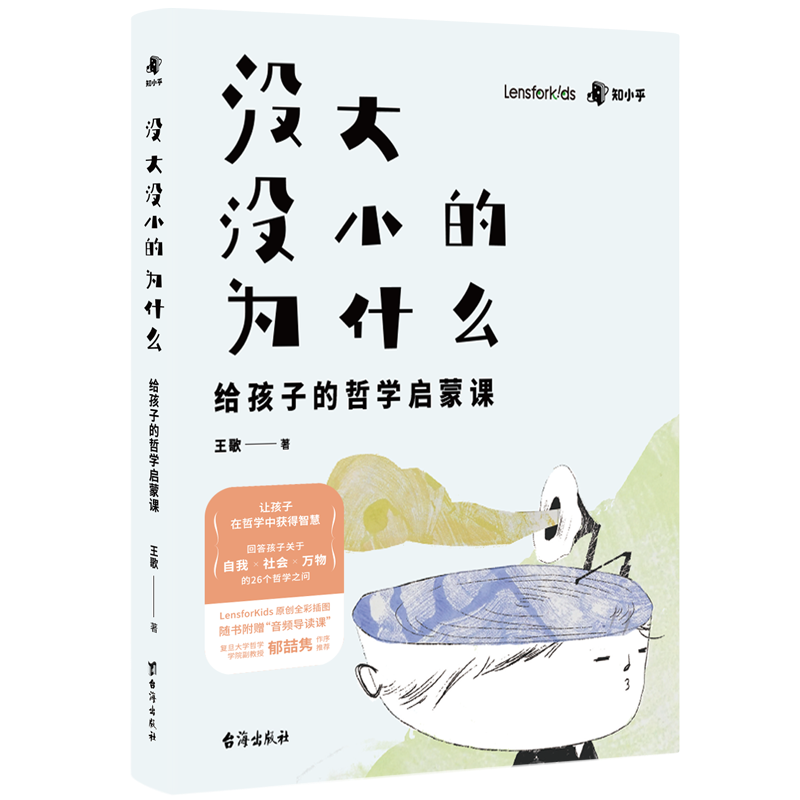
You don't have to have the burden of "mastering the answer" because of these classic "big questions". In daily dialogue, don't be afraid that the child's problem is too boring or too deep. Gao Ming's question is not a ready -made perspective, concept, and problem. Adults and children can give answers from different angles to each question, and even unbelievable responses, but at least open.
We also have to face the child's "why" solemnly. The expression of thinking depends on language. It is not true that the child has not yet mastered the routine. Like understanding poetry, try to understand the language of the child; like respecting art, respect every duplicate of the child. Tired of repeating itself, it is quite tedious and not sensitive.
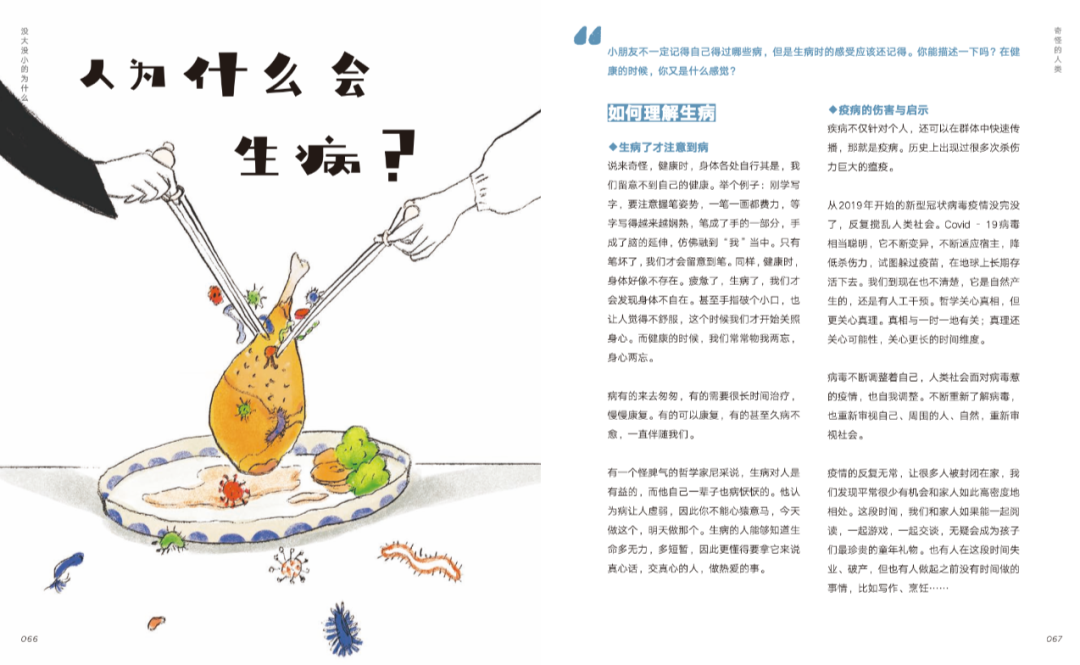
I hope that this book can be an introduction, first a little "script" rich dialogue. It is best to encourage children to directly ask questions in life. If you can form a habit of philosophical discussion in family or classrooms, you will make a lot of surprises. With the children, they will teach us a lot.
There is no question to the final answer
In real life, we have a lot of questions that seem to ask questions, but not a real problem. Questions in the school textbooks are more questions and answering themselves. Over time, we often have a understanding: questions and answers are ready -made, and the answers are mostly accurate and fixed.
When the children enter the high grade or enter the relatively forefront areas in the future, they will find that there is no ready -made problem, and the problem is to find it by themselves. It is not only difficult, but also sets the path of the result. In addition, the answer is not so easy to get. Usually we get only some phased answers, and sometimes we have done long -term work, just exclude some conjectures, or find out the wrong question.
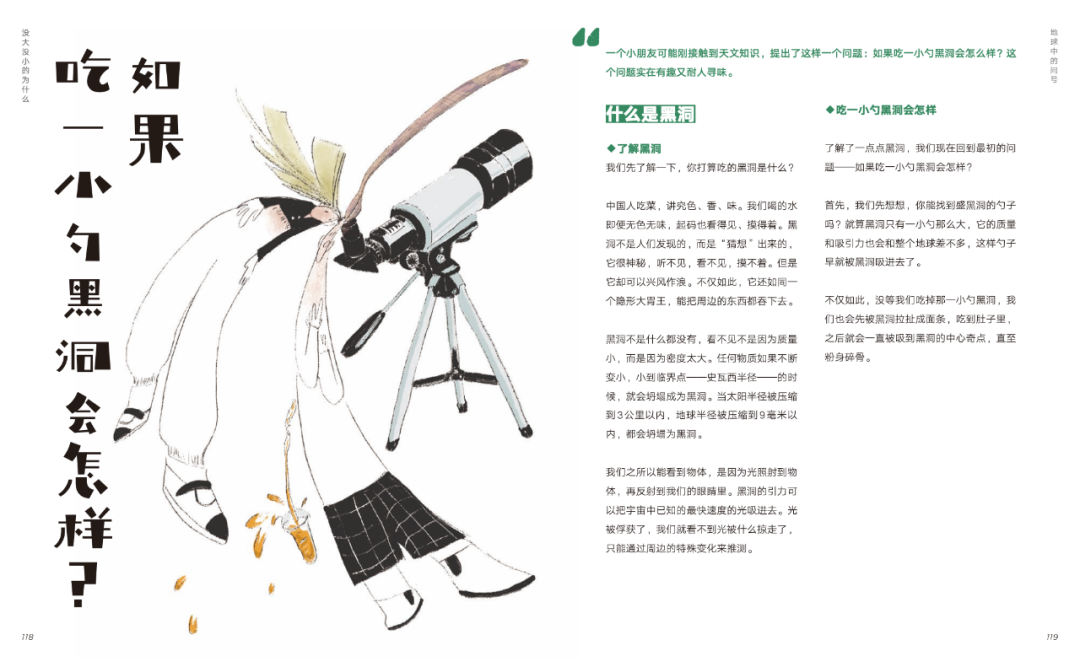
Without the "final answer" we usually expect, it may make people feel that it is lost or even uncomfortable. But this is a necessary process.
Encourage children to ask questions, ask real questions, and ask questions with the children. No matter how simple it seems, how big, not proper, and boring, there will always be two or three special flash of the ten issues. If you have not been taken seriously at the beginning, you may not be able to keep your attitude towards life and the world in the future. For a small example, a child asked, "Why is there a wind?" In strict sense, this is not a philosophical issue. Perhaps the conventional way is to give an explanation about the climate and answer with the so -called natural science content. However, we can still reflect on this question with a philosophical attitude: how did "wind" appear as a word? How does the meaning of wind? In addition to the perspective of natural science, explaining "wind" also has the perspective of myths, the perspective of religion, and even the perspective of literature. In this way, a problem has a variety of aspects.
Philosophy is the least big and small
Philosophy does not recognize the ready -made authority, and it hopes to give a reason to discuss things clearly. This process is actually a process of persuasion, the process of reason. In the theory of this book, I did not discount because I answered the questions of the child. There may be only two places where adults are different: one is to quote some picture books stories, and then use less terms. In addition, I try to express it with what children understand.
Some parents will say that my child can't understand it. I personally think that "don't understand" is a very important part of learning. Even those who do research specifically, there are still many puzzles to discuss a certain text together. Or I felt understanding at the time, but after many years, I found that I did not really understand through the study of their peers.
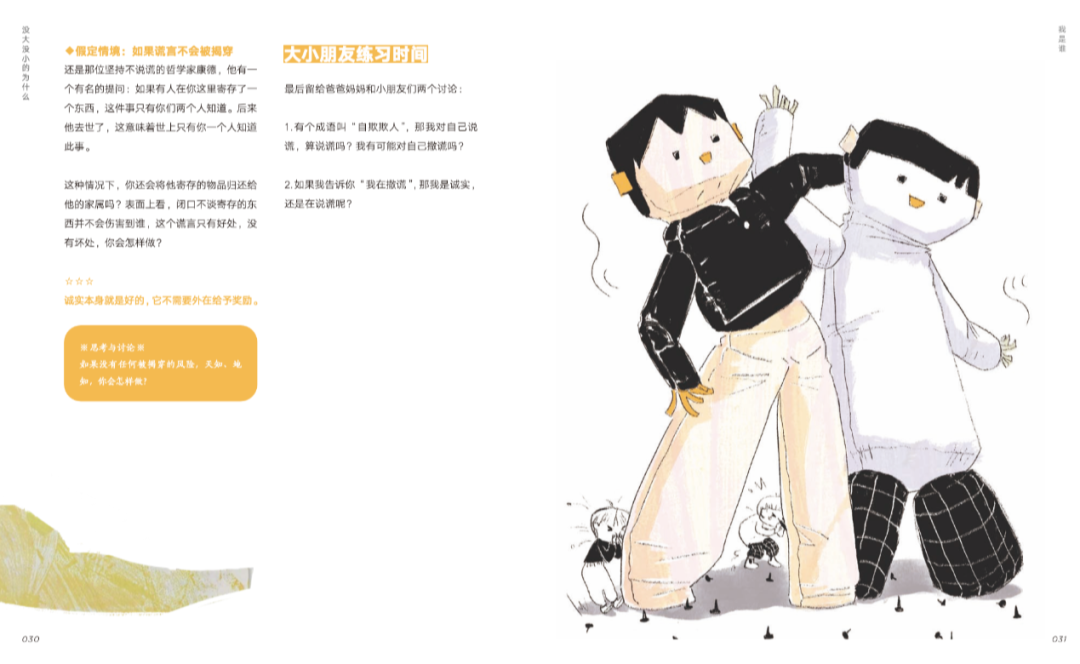
What I want to say is that "not understanding" is an important part of human education and the motivation to promote cognition. I question the way of training fast food. Learning is more immersive, and moisturizing is silent.
For the concept that is still difficult to understand, you can give the children a bit more "passive vocabulary". He may not be able to understand when he hear it for the first time or twice, but slowly accumulate, the children can abundant their understanding in the context. Some studies have also proved that if children grow up in a relatively complex and rich environment, children will help cultivate future humanistic literacy and reading and writing.
How to use this small book
It is best to fix it in a period of time, read and discuss with your children. You can also find some picture books involving similar issues, write down the highlights of the discussion, and make this book truly your own thinking work.
One of the original intentions of "Children's Philosophy Enlightenment Class" is to encourage parents and children to form a habit of discussing between children and children. This kind of discussion can be carried out on various occasions: for example, parents take their children to outdoor activities, watch the movie, listen to the music, read the picture book, have common experience, and then discuss it. Perhaps it can be turned over to see if there are different ideas.
When discussing with your child, you can try several small methods:
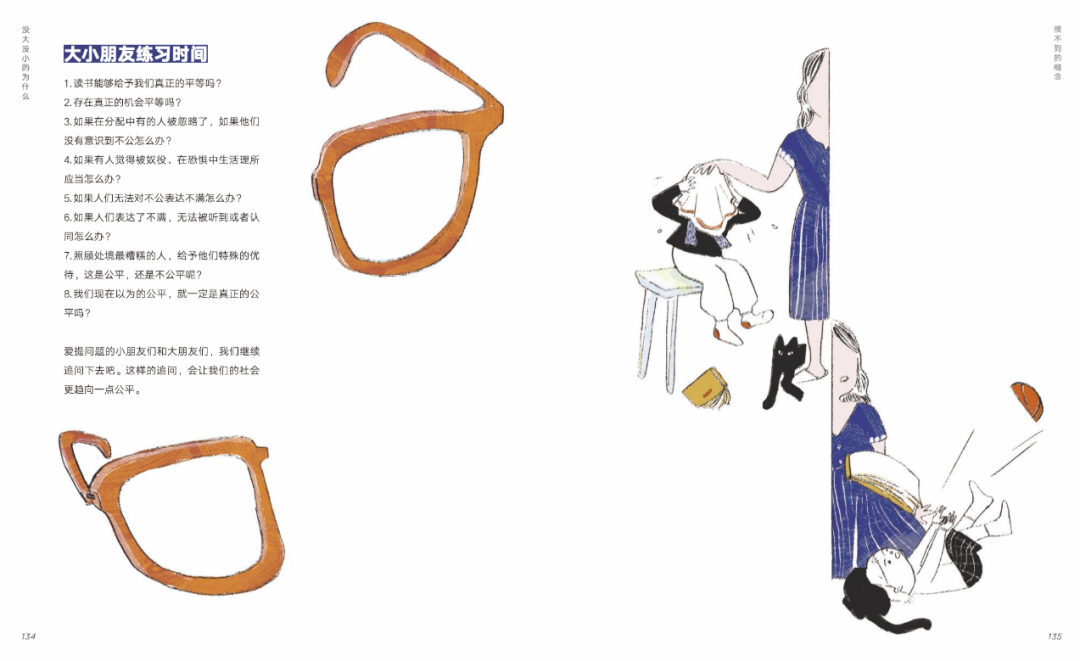
1. What is the past
For example, discussing "Why is there punishment?" It can be understood through the history of Beijing Cai City and the European fault. By the contemporary, the law abandoned torture and punished away from the public's horizon. The important thing is not to "punish criminals", but to let the public know that the criminals have been punished. Without the past, we can't understand the present.
2. What are the reasons
Aristotle's movement of things gave "four reasons" -the material, formation, dynamic cause, and purpose. For example, we examine why a thing is exercise and what materials it is made? What is it, why does it belong to this category? What is its motivation or the promoter later? Where does its purpose / goal point? In the final basis, it is here. Constantly ask
How it is formed, and sometimes we lead to new problems and ideas that we are unexpected.
3. How to reach the word
There is no foreign language, and the language seems to be transparent. After learning foreign languages, you will have a new understanding of his mother tongue. Sometimes you can find a source of words or words, tracing back to traditional characters, and even oracle. Either translate between Chinese and foreign languages, such as "IS" in English, can be "what" or "what". For another example, sometimes there are a few words at the same time refer to the same thing -some
The name disappears, and some names are still in use. And how to use it, in fact, revealing the (new) method we treat the world. For example: The brightest star we see in the morning is called Qi Xing, or morning stars; the brightest star you see in dusk is called Chang Gengxing, or twilight stars. And these two stars actually refer to the same star -Venus. So, do these words really mean something?
4. Another possibility
Once I read the picture book "The Little House in the Forest" with the children. In the story, a kind little deer accommodated the little rabbit and fox in the small house. Later, it also helped the hungry hunter. Killing instincts and getting along peacefully, all are happy. But the story of the story has not ended, we envisioned the cruel version of the story together. Because of the cruel possibility, the little deer's power to resolve Gan Ge is moving, and the small house in the forest seems to surpass the world of love.
5. Suspecting place
French philosopher Cartesian summarized four scientific methods:
◎ Do not accept uncertain things, others say that "right" is not enough, and it is necessary to prove it by yourself. ◎ Divide each problem that looks difficult into the minimum part, and solve it step by step.
◎ Set up in order, from simple to complex.
◎ List all possible situations as much as possible.
If you simply represent these four, the first step is suspected to be zero; the second step is to be resolved into minimum unit 1; the third step is from simple to complex, that is, more or n + 1; the fourth step integrity is all or ALL). From this point of view, Descartes' methodology has a logical beauty. The latter steps of Descartes scientific methods are technical, and the first step is not trustworthy or blindly, and "proof" requires courage and will.
I hope that we can create the possibility of courage and will with children.
This article is the preface made by Wang Ge, the author of "No Big and Nothing", and the language that friends can understand with big and small friends. Talking about how to do philosophical exercises at home. Guide to use.
Bleak
"Why is there no big or small" is now on the shelves and Jingdong
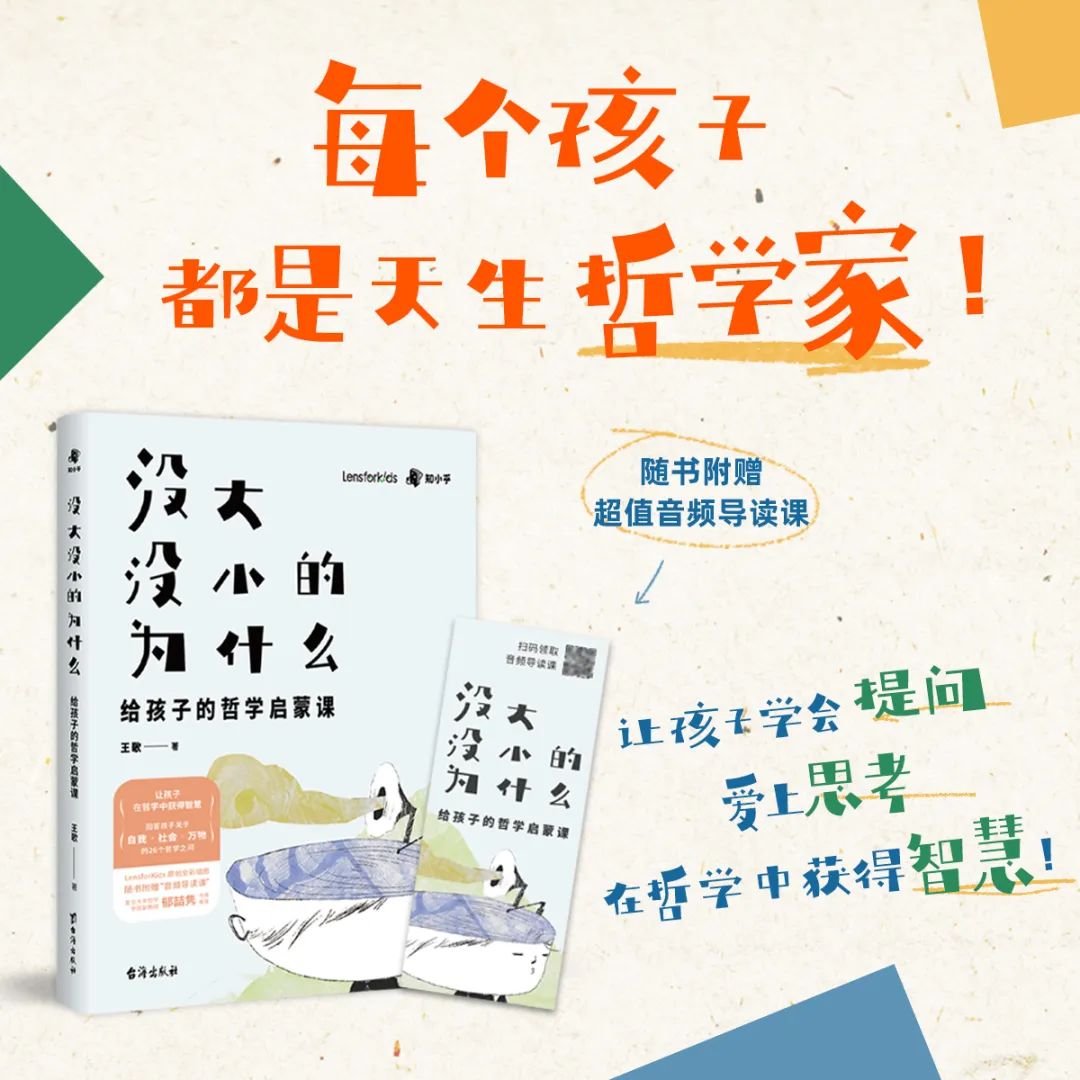
also may
- END -
[Cultural Tourism Director of Calligraphy Travel] Weifang: Thousands of years, Kite Du Weifang!

Millennium Gu Weixian, the world kite. Shandong TV Cultural Tourism Channel Specia...
Read the marathon and love to "run", punch card with donations to rich rural children's reading resources
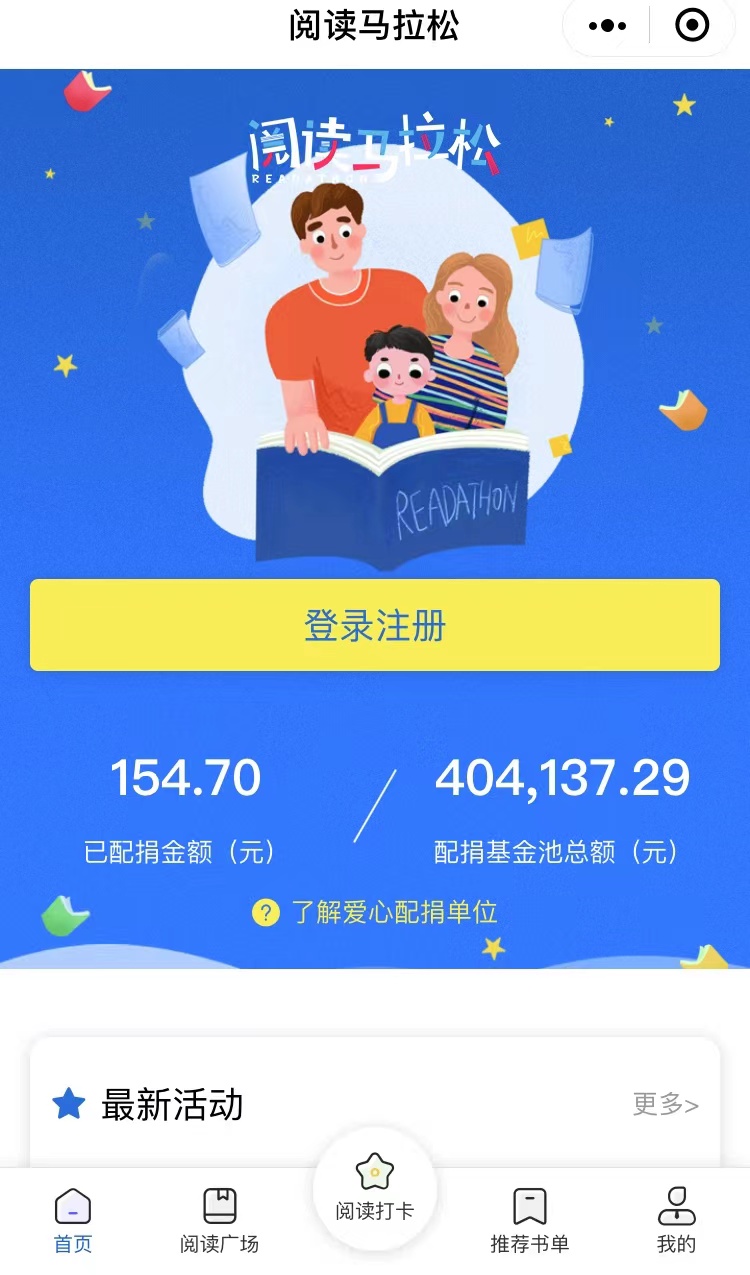
In response to the country's full efforts to promote the reading of the whole peop...